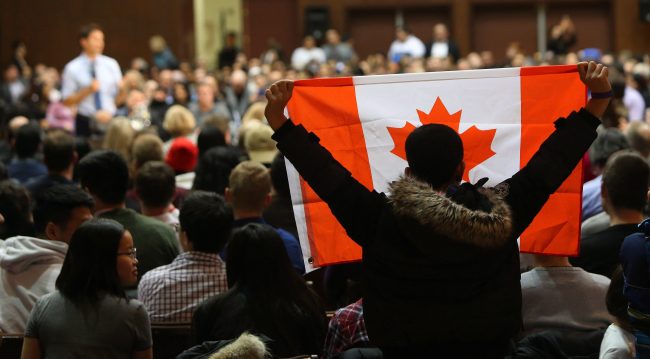Only twenty-seven per cent of Canadian millennials say their generation will have had a better life than their parents’, compared to 42 per cent of respondents aged 50 to 64, according to a new Ipsos global poll provided to Global News.

Overall, as many as 46 per cent of Canadians feel their generation will have had a worse life than their parents; only 42 per cent think the lives of their contemporaries will be better than that of the previous generation, and only 17 per cent think it will be about the same.
Sean Simpson, VP of public affairs for Ipsos, attributes the generational split to what he dubs “our new, post-great recession reality.”
READ MORE: Canada’s best cities for full-time jobs
“We’re no longer seeing three-plus per cent growth every year, there’s no longer a job for everybody who comes out of university with an undergraduate degree and housing prices are rising faster than incomes,” Simpson told Global News.
“Boomers might be saying, ‘well thank heavens I already own my own house, I’ve worked for 30 years already, I didn’t graduate with crippling debt and I was able to get a house’… and millennials are having a different experience, and that’s being demonstrated in the data.”
At least half of respondents in every age group suggested that today’s youth will have a worse life than their parents’ generation.
READ MORE: Trudeau government begins to (slightly) lose its appeal: poll
“There’s a realization that maybe things aren’t going to be as easy for this generation as it was for baby boomers,and then by extension, that it will be no more easy for the next generation after and that maybe things will be getting progressively more difficult,” Simpson said.
Canadians’ assessment of their generations’ progress varied across provinces however.
Around half of Quebecers and Albertans said their generations are worse off than their parents’, compared to only 33 per cent of respondents in the Prairies.
Simpson suggests that Albertans’ concerns may only be temporary, “given the recession, oil prices and job layoffs”, that could yet rebound, while Quebecers’ pessimism may be influenced by cultural differences with respect to personal finances.
WATCH: State of Alberta: The Alberta Jobs Plan

“Of course, there are consequences as a result of that. If you’re not saving, you may be more pessimistic for your retirement and the belief that the government is still going to have enough money to pay out QPP (Quebec Pension Plan) and Old Age Security and things like that.”
READ MORE: Quebec, Ontario sign $1-billion annual hydroelectricity agreement
Respondents’ ratings of their generations’ prospects were also influenced by their income levels. Thirty-seven per cent of people with high incomes said their generation would be better off than their parents’, compared to only 23 per cent of people with low incomes.
This proves that pocketbook issues tend to be on top of mind when people assess their day-to-day lives, Simpson said.
“If you’re having a hard time paying for shelter, food and transportation, not a whole lot else matters.”
Exclusive Global News Ipsos polls are protected by copyright. The information and/or data may only be rebroadcast or republished with full and proper credit and attribution to “Global News Ipsos.” This poll was conducted between Oct. 21 and Nov. 4, 2016 with a sample of 16,096 interviews with adults aged 16 to 64. The precision of Ipsos online polls is measured using a credibility interval. This poll is accurate to within +/ – 3.5 percentage points, 19 times out of 20, had all American adults been polled.




Comments